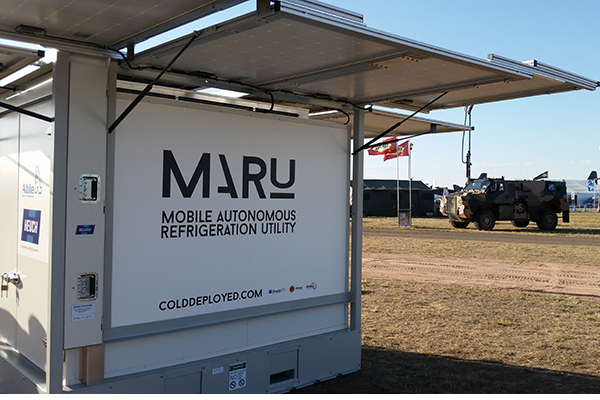We use cookies to give you a better experience on our website. Learn more about how we use cookies and how you can select your preferences.
Heuch – empowering businesses and communities to be self-sufficient

Heuch design and build customised refrigeration, environmental control, solar power and air conditioning products to meet the operating needs of customers.
The R&DTI has allowed us to be more entrepreneurial and forward focused than we otherwise might have been. We couldn’t afford to carry out our R&D activities without the R&DTI.
Company profile
Company: Heuch
Sector: Manufacturing, built environment
Location: Melbourne, Victoria
Profile: Heuch is a manufacturing and service company specialising in heating, ventilation and air conditioning engineering solutions.
Why R&D was needed
The core business for Heuch is designing bespoke air conditioning, refrigeration and climate control systems that meet unusual demands. Whether it’s cooling for uniquely harsh environments or customised solutions for the Australian Defence Force, extensive R&D is required to make their business work.
A great example of this is their range of solar-powered refrigeration units designed for remote communities unable to rely on traditional power supplies. Heuch’s R&D demonstrated the viability of running self-sufficient, large scale refrigeration units through solar and batteries. According to the company, this meant that their units were first to market with proven, field-tested systems.
Heuch has also leveraged R&D in service support to other Australian businesses with the company developing their own unique components in Australia. This has allowed Heuch to build knowledge and skills, cut costs and have more control of the supply of components and techniques critical to servicing refrigeration equipment.
Heuch’s managing director Steve Oakley sees the company’s R&D activities as an investment in their future as they develop their next line of products and explore new markets. “The R&DTI has supported us through the exploration of generational technology changes and into a phase where we now have the freedom to grow and expand into new areas,” he says.
How the R&DTI helps
Before the R&DTI, Heuch focused on their traditional manufactured product and service business, with R&D limited to developing the odd component which was difficult to source. Since joining the R&DTI program in 2003, the company has increased spending on R&D by 15% and has developed new, innovative technologies.
Mr Oakley explains that, while R&D remains an inherently risky activity, the support of the R&DTI has given the company the confidence to investigate new ideas, technologies and potential markets that would have otherwise been unviable.
On the basis that we would receive some compensation back from the R&DTI program, we could justify having a go at something that could work and allow ourselves the opportunity to make mistakes.
With support from the R&DTI, Heuch has developed more than 12 different products and explored a number of new ideas. As a direct result of the program, the company has expanded into new markets including hybrid solar and refrigeration technologies for remote areas and disaster relief.
Heuch’s R&D activities have meant their staff have had the opportunity to upskill and work on a variety of interesting and challenging projects. Mr Oakley says that “The RDTI program helps us to promote lifelong learning in our business; in turn maintaining morale, boosting self-empowerment and improving personal development for staff.”
In the future Mr Oakley sees the R&DTI supporting Heuch in exploring opportunities for collaboration with RMIT University. The company has created two internship opportunities for students from the university in a partnership that gives students first-hand industry experience and allows Heuch to deepen ties with an external research institution.